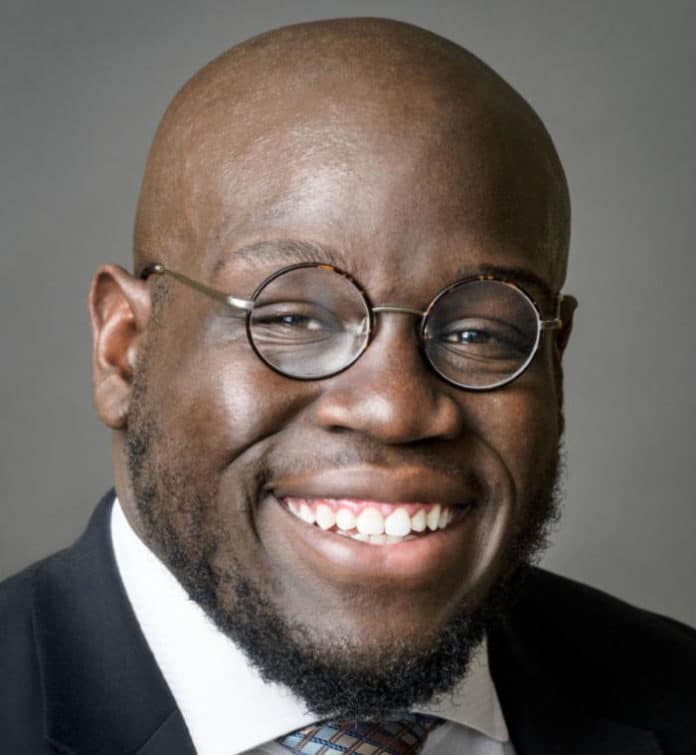By Caleb Gayle | April Ryan, White House correspondent for American Urban Radio Networks, and other journalists of color have not been favorites of President Donald Trump. From telling Ryan to set up a meeting with the Congressional Black Caucus when she asked if he planned to meet with black members of Congress to calling her a loser, President Trump has displayed his contempt for Ryan.
In his post-midterm press conference, Ryan became the target of Trump’s ire yet again. But this time what the President did was show more than displeasure with black female reporters – his theatrics overshadowed a key issue that Ryan was trying to address: voter suppression. While his rage, his diminishing of the credibility of these black, award-winning journalists, and his stupidity in calling their questions “racist” minimized what was actually happening: Trump was committing racism by omission.
Ryan’s question was simple, “Mr. President, what about voter suppression?” She stood up after Trump acknowledged her question but was promptly told “sit down.” While pundits opined about Trump’s mistreatment of black women journalists, many missed that Trump refused to answer the question about voter suppression, which is poisoning our democracy and disproportionately disenfranchising communities of color.
The reality is that suppressing votes has become a hallmark of most of the Republican electoral strategy. Their politicians refuse to engage with communities of color, and instead embark on strategies to diminish our power at the voting booth. We can all see it. But the President uses his bully pulpit to create distractions that shield scrutiny of this undemocratic tactic. Moreover, it allows him to avoid questions about the strategy that he has happily endorsed and enacted with the Republican party.
As a reminder, Republicans have not been particularly shy about their voter suppression efforts. For example, Ben Nadler of the Associated Press broke news in October that in Georgia, approximately 53,000 voter registration applications were sitting on hold at the office of Brian Kemp, Georgia’s Secretary of State and Republican nominee for governor. Nadler’s team at the AP identified that most of these applications were those of black voters.
Voter purges are supposed to be used to eliminate people who become ineligible to vote usually because they move or because of a death or incarceration. But in some states like Ohio, voter purges have wrongfully removed people who have not voted in the past few elections. In the runup to the midterms, some 32 counties in Florida violated the law by not providing bilingual ballot assistance.
More egregiously, states like Kansas use the Interstate Voter Registration Crosscheck (Crosscheck) to identify duplicative voter registrants across numerous combined voter rolls and subsequently purge those duplicates. Expanded under Kris Kobach – the outgoing Republican Secretary of State and failed gubernatorial candidate – Crosscheck, which had an error rate of 99.5 percent, uses a loose name matching that disproportionately targets voters of color for purging. According to a study by the Brennan Center for Justice, “African-American, Asian-American, and Latino voters are much more likely than Caucasians to have one of the most common 100 last names in the United States.”
According to the U.S. Census Bureau, 16.3 percent of Hispanic people and 13 percent of black people have one of the 10 most common surnames, compared to 4.5 percent of white people. An ongoing lawsuit on this is underway and being pursued by Demos.
And in states like Alabama, voters are up against photo ID laws, which disproportionately affect black voters, limited access to offices to issue IDs in black areas, and more. Clarity around where to vote, how to vote, and eligibility to vote become even more significant when these impediments make voting disproportionately harder for black people.
According to a study by the Public Religion Research Institute, “black (nine percent) and Hispanic (nine percent) Americans are three times more likely than white Americans (three percent)” to report complications with voting for them or someone in their household because of identification issues. In the same report, “black (15 percent) and Hispanic (14 percent) Americans were roughly three times more likely” to have trouble locating their correct polling place than white Americans (five percent).
As president of the United States, Trump had an opportunity to explain his views on voter suppression when Ryan asked her question. Because of his inconsistent application of the truth, one can expect the truth would be stretched or he would offer up unverifiable facts. Instead he exhibited the Trump brand of racism – racism by omission, refusing to acknowledge that voter suppression exists and is spreading across the land in states predominantly controlled by Republicans.
Voter suppression is a weighty issue, especially for African Americans, whose ancestors marched, protested and died for the right to vote. For President Trump, to simply dismiss voting suppression by assailing Ryan, is a racist slight to all people of color, and our forefathers.
Author Profile

